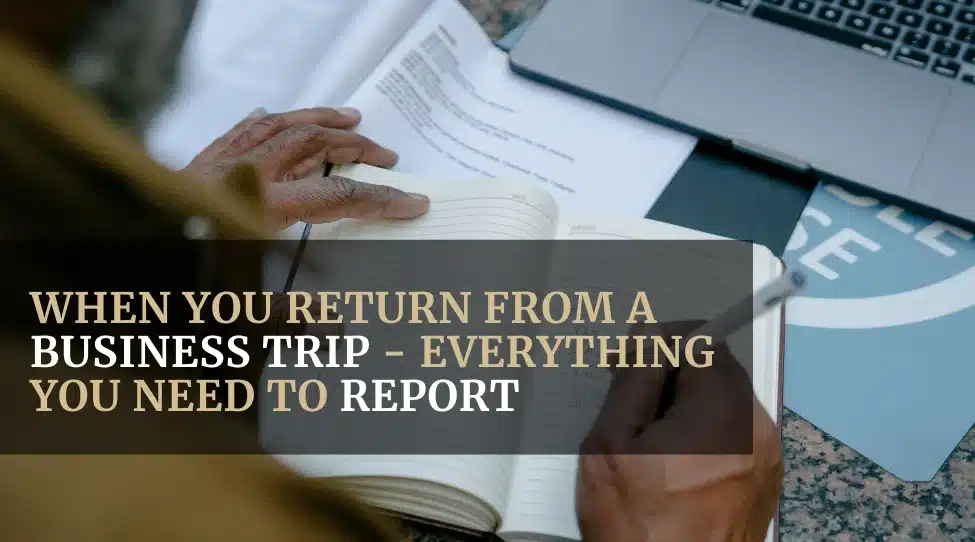
Inspired Travel Group is a full-service corporate travel agency servicing clients right the way across North America. Our people first approach to travel ensures only the highest levels of personalized, attentive service.
Returning from a business trip can feel like a mix of relief and stress. While you may have closed deals, attended important meetings and discovered new opportunities, there’s still one more critical task to tackle, reporting. A clear and organized business trip report helps justify your travel, track expenses and show the value of the trip to your company.
This guide will simplify the process with actionable tips, a report structure and tools to help you get it done quickly and effectively.
When you’re back from a trip, reporting may feel like a low priority, but it plays a major role in business success. Here’s why it matters:

A strong business trip report is clear, concise and thorough. Here’s what to include and why it matters:
Date | Activity | Participants | Outcome |
Sept 12 | Client Meeting with ABC Inc. | John Smith (ABC) | Discussed new partnership opportunities. Follow-up scheduled for Oct 1. |
Sept 13 | HR Conference Keynote | Industry Leaders | Gained insights on leadership trends impacting hiring. |
For Canadian travelers, this is particularly important when claiming GST/HST refunds or calculating taxable benefits related to travel.
An expense report ensures you’re reimbursed for eligible costs while providing transparency for the company. Here’s what a clear expense report should include:
Tip: Scan receipts as you go using apps like Expensify to avoid the post-trip scramble for paperwork.
Not all trips require extensive reporting, but here’s when it’s typically needed:
For example, instead of saying:
“The meeting went well,”
you could say:
“During our meeting with ABC Corp, we discussed a partnership proposal that could increase revenue by 15%. Next steps: finalize terms by Oct 15.”
Reporting after a business trip is a key step in ensuring your hard work on the road translates into measurable value. A well-prepared report highlights your achievements, tracks expenses and connects the trip to tangible business outcomes. By following the tips and structure outlined above, you’ll create a report that’s both clear and impactful.
If you’re looking for seamless business travel planning that keeps everything on track, Inspired Travel Group has you covered. We ensure your travel logistics are handled with care so you can focus on what matters most: achieving results. Contact us today and discover how we can transform your corporate travel experience.